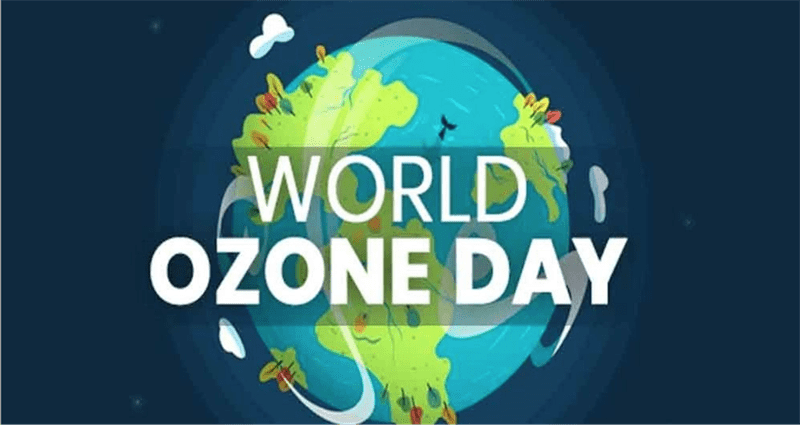15th September 2021
Saint Lucia observes World Ozone Day 2021
By Jesse Leonce, Department of Sustainable Development


Saint Lucia joins the global commemoration of the International Day for the Preservation of the Ozone Layer on Thursday 16th September 2021. This year marks the 34th anniversary of the 1987 signing of the Montreal Protocol onSubstances that Deplete the Ozone Layer. Ratified by all 198 countries of the world, the Montreal Protocol is touted as one of the most successful environmental agreements to date as the ozone layer now shows signs of recovery thanks to the phasing out of ozone-depleting substances (ODS) globally. Such chemicals are more commonly used as refrigerants in everyday appliances such as refrigerators and air-conditioners. Some are used in fire-extinguishers, mobile air-conditioning units, and as agricultural fumigants against pests. Hydro-chlorofluorocarbons (HCFCs) are the main ODS used today; however, under the Montreal Protocol, countries have committed to eliminating their use by 2030.
In October 2016, the Montreal Protocol’s Kigali Amendment was adopted, lining up another group of refrigerants called hydro-fluorocarbons (HFCs) for phase-out. Considering its zero impact on the depletion of the ozone layer, HFCs have been relied on as a replacement for hydro-chlorofluorocarbons (HCFCs) and chlorofluorocarbons (CFCs), however, it is also a harmful greenhouse gas. The goal of the Kigali Amendment is to achieve an 80% reduction in HFC consumption by 2047. This impact will avoid an up to 0.5°C increase in global temperature by the end of the century. Another climate benefit to be derived from the HFC phase-down is the opportunity to improve energy efficiency in the cooling sector which contributes to food security. This year’s World Ozone Day theme, “Montreal Protocol: Keeping us, our food and vaccines cool” highlights the Agreement’s invaluable contribution to a sustainable cold chain that ensures the integrity and safety of pharmaceuticals, food, and other chilled goods essential to lives and livelihoods.
The “cold chain” refers to the various stages that a refrigerated product passes through, either until it is removed by a customer in a retail environment or unloaded from a delivery vehicle a few metres from its destination. For consumers, the cold chain is often associated with transport, retail, and household refrigerators. However, refrigeration is also widely used in the agri-food industry for the storage of raw materials and final products, as well as for food processing. It is estimated that each year, 33% of all food produced is lost or wasted which equates to a financial loss of about 940 billion US dollars and accounts for 8% of global greenhouse gas emissions. 50% of temperature-sensitive food is lost post-harvest primarily because of the lack of access to cold-chain logistics. Also vital for the safe supply of vaccines, medicines, and healthcare applications, public awareness of the cold chain has increased under current global pandemic conditions primarily for its delivery of life-saving COVID-19 vaccines to countries around the world.
The commitments under the Kigali Amendment can help parties work together to use new, sustainable cold chain systems that are highly efficient, safe and use climate-friendly refrigerants. On World Ozone Day 2021, let us reflect on the benefits of the cold chain in our everyday lives.
Happy World Ozone Day from the Department of Sustainable Development!
For more information on the phase-out of ozone-depleting substances in Saint Lucia, please contact the National Ozone Unit of the Department of Sustainable Development via telephone 468-5833/468-5804/468-5806 or email [email protected]

TO RECEIVE NEWS NOTIFICATIONS And Covid NEWS VIA WHATS APP PLEASE SAVE OUR NUMBER AND SEND US A MESSAGE AT 7584896261 AND WE WILL ADD YOU TO OUR LIST




